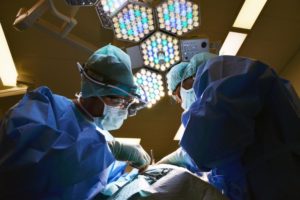What do we mean when we say, “Miraculous recovery”?
The message flashed across my computer screen.
Terry has just been taken by ambulance to a local hospital. Updates to follow.
Terry and Kathy are personal friends. We have taught together. I immediately texted Kathy.
Just saw a message about Terry. Tell me what hospital to go to and I’ll meet you there.
Seconds later Kathy texted back.
He is at Methodist. But I don’t have a car to get there.
My thumbs pounded out the words,
I’ll be right there to pick you up.
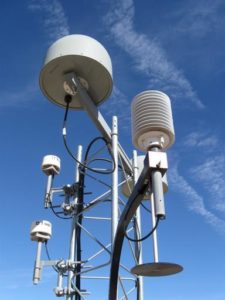 Neither of us knew what to expect. In an age of instant communication, we knew absolutely nothing. We took the half hour trip into the city. We were directed to where Terry had just exited emergency surgery.
Neither of us knew what to expect. In an age of instant communication, we knew absolutely nothing. We took the half hour trip into the city. We were directed to where Terry had just exited emergency surgery.
 The doctor entered the small counseling room where Kathy, her son, his wife, and I had congregated to meet the surgeon. He spoke in short, clipped statements, carefully dodging the emotional minefields. He explained Terry’s enormous blood loss, the upcoming surgeries to maintain his life, and the anticipated outcome.
The doctor entered the small counseling room where Kathy, her son, his wife, and I had congregated to meet the surgeon. He spoke in short, clipped statements, carefully dodging the emotional minefields. He explained Terry’s enormous blood loss, the upcoming surgeries to maintain his life, and the anticipated outcome.
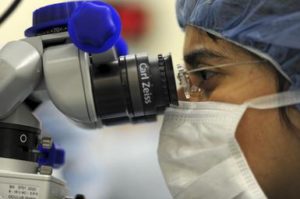 The doctor was direct without being blunt. To Kathy he said, “Terry was at the right place, with the right people at the right time to sustain his life.” From the beginning, all of us were praying for Terry. Kathy would reiterate her viewpoint every time she talked with the doctor. Her comments would always go something like, “Terry’s a fighter. And I know that our prayers have an impact.” The doctor, a somber, non-religious man, would say nothing.
The doctor was direct without being blunt. To Kathy he said, “Terry was at the right place, with the right people at the right time to sustain his life.” From the beginning, all of us were praying for Terry. Kathy would reiterate her viewpoint every time she talked with the doctor. Her comments would always go something like, “Terry’s a fighter. And I know that our prayers have an impact.” The doctor, a somber, non-religious man, would say nothing.
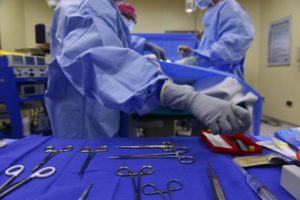 Terry’s abdominal aneurysm burst the 16th of November 2016. The doctors performed a dozen operations. He was shuttled to various medical facilities for most of the next year. Now, fifteen months later, Terry is back home. He is in good health, he works daily on his physical therapy, and participates in community events. Terry is a historian. He and I share ideas, papers, jointly read books of mutual interest, and plan to teach together in the future as we have in the past.
Terry’s abdominal aneurysm burst the 16th of November 2016. The doctors performed a dozen operations. He was shuttled to various medical facilities for most of the next year. Now, fifteen months later, Terry is back home. He is in good health, he works daily on his physical therapy, and participates in community events. Terry is a historian. He and I share ideas, papers, jointly read books of mutual interest, and plan to teach together in the future as we have in the past.
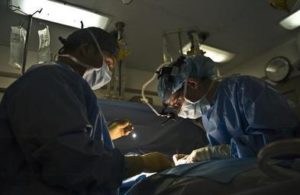 Months later, after Terry was out of medical danger, the doctor was honest. He told Kathy, “Terry should be dead. I cannot explain why he is alive.” Kathy did not mince words, “You may not be able to explain why Terry is alive, but I can. His friends and family prayed, God heard our prayers, and it is God’s will that Terry is still with us today.”
Months later, after Terry was out of medical danger, the doctor was honest. He told Kathy, “Terry should be dead. I cannot explain why he is alive.” Kathy did not mince words, “You may not be able to explain why Terry is alive, but I can. His friends and family prayed, God heard our prayers, and it is God’s will that Terry is still with us today.”
 How do we explain Terry’s story? I posit that there are no words. God’s work through Terry is marvelous, wondrous, nothing short of miraculous. There are two Hebrew words which set the foundation for our understanding. Palah means something exceptional or extraordinary (Daniel 11:36). Tamah means to be amazed or astonished (Ps 48:5; Gen 43:33).
How do we explain Terry’s story? I posit that there are no words. God’s work through Terry is marvelous, wondrous, nothing short of miraculous. There are two Hebrew words which set the foundation for our understanding. Palah means something exceptional or extraordinary (Daniel 11:36). Tamah means to be amazed or astonished (Ps 48:5; Gen 43:33).
God’s work is
-
Beyond human capabilities of explanation (Job 5:9; 37:5). “You would not believe it even if you were told” (Hab 1:5).
-
Astonishing and full of praise (Ps 98:1).
-
One of a kind—“never before done in any nation in all the world” (Ex 34:10).
-
Publicly witnessed for everyone to see (Ps 78:12).
-
Publicly proclaimed (“tell,” “show,” “declare,” 1 Chr 16:24).
-
“Fashioning” suggesting God’s creativity in activity (Ps 86:9; 95:5; 96:5).
-
Showing His involvement in human affairs (Josh 24:17; Ps 98:1; Isa 25:1).
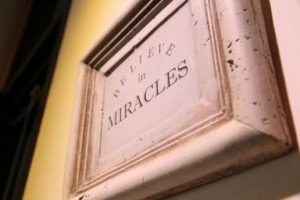 Terry’s recovery inhabits every single one of these ideas. God works in miracles. Human ability to adequately convey the totality of God’s works pales in comparison to the works themselves. Words fail us as finite beings attempting to explain processes beyond our comprehension.
Terry’s recovery inhabits every single one of these ideas. God works in miracles. Human ability to adequately convey the totality of God’s works pales in comparison to the works themselves. Words fail us as finite beings attempting to explain processes beyond our comprehension.
The doctors can’t rationalize Terry’s healing. I am so glad that I can continue my friendship with Terry on this side of eternity. Healing is beyond my ability to comprehend much less explain.
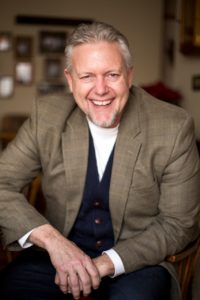 This essay is also published at the Emerging Scholars Network Blog (here). Dr. Mark Eckel is President of The Comenius Institute (website), spends time with Christian young people in public university (1 minute video), hosts a weekly radio program with diverse groups of guests (1 minute video), interprets culture from a Christian vantage point (1 minute video), and teaches at his church (video).
This essay is also published at the Emerging Scholars Network Blog (here). Dr. Mark Eckel is President of The Comenius Institute (website), spends time with Christian young people in public university (1 minute video), hosts a weekly radio program with diverse groups of guests (1 minute video), interprets culture from a Christian vantage point (1 minute video), and teaches at his church (video).
Picture credit: snappygoat.com
Afterword
Questions
- How do we respond to others who have not experienced healing?
- What part does prayer play in any situation I confront?
- Why is my view of God important to the process of prayer?
- Who has a story of healing that you know that should be told?
Prayer
Dear LORD. May we remember your marvels throughout creation and in all nations. May Your people continue to look for the awesome things You will do with us. Amen. (A prayer based on Exodus 34:10)
We look for medicine to be an orderly field of knowledge and procedure. But it is not. It is an imperfect science, an enterprise of constantly changing knowledge, uncertain information, fallible individuals, and at the same time lives on the line. There is science in what we do, yes, but also habit, intuition, and sometimes plain old guessing. The gap between what we know and what we aim for persists. And this gap complicates everything we do.[1]
[1] Atul Gawande, Complications: A Surgeon’s Notes on an Imperfect Science, p. 4


